SAMUTER is a coordinated project involving researchers from different universities:

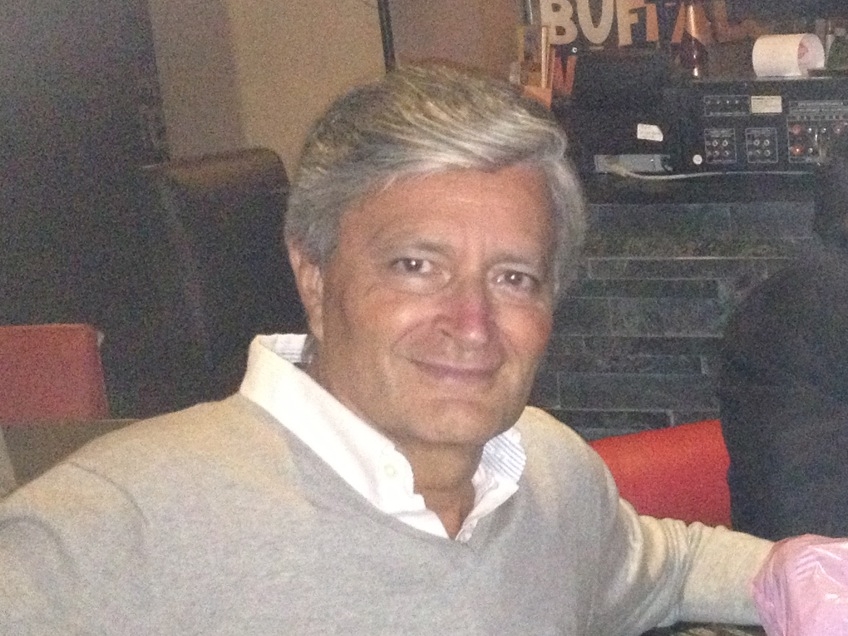
Rafael Mata Olmo - Principal Investigator
Specialist in the study of rural systems and landscapes, heritage landscapes and peri-urban agriculture (National Publications Prize of the Spanish Ministry of Agriculture, 1987), and in land-use planning, landscape and nature conservation policies in Spain and Latin America. Co-author of the book Landscapes of Madrid. Nature and rural areas (Region of Madrid Urban Planning Award, 2000) and co-director and author of the Atlas de los Paisajes de España (Ministry of the Environment, 2003; Spanish Geographical Society Research Award, 2004). Editor and author of the book Landscape heritage. Nansa and Peñarrubia Valleyas part of the Botín Foundation’s Heritage and Territory Programme (Hispania Nostra Award 2014 for the “best landscape intervention”).
He is currently President of EUROPARC-Spain (a technical-professional forum that brings together all the public administrations with competence in protected natural areas), Director since 2009 of the magazine Ciudad y Territorio. Estudios Territoriales (Indexed in Scopus, Spanish Ministry of Development) and member of the drafting committee and Secretary of the Executive Committee of the National Plan for Cultural Landscapes (2012, Spanish Cultural Heritage Institute, Ministry of Education, Culture and Sport). He has been President of the Spanish Association of Geography (2005-2009) and of the Spanish Committee of the International Geographical Union.
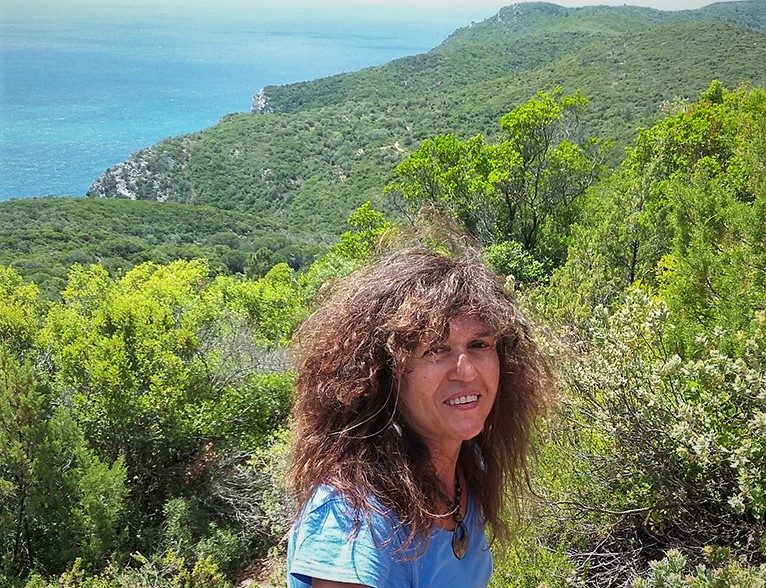
Nieves López Estébanez - Principal Researcher
Department of Geography of the Autónoma University of Madrid
Research Group Paisaje y Territorio en España y en América Latina (PAYTEMAL).
Main research themes: Agrosystems, forest landscapes: dynamics and processes related to forest uses and agro-livestock landscapes (pollards of Fraxinus angustifolia, mediterranean hedgerows, cork oak and juniper formations in the Madrid region, etc.); Landscape and heritage. Knowledge of landscapes, their functioning and dynamics; Landscapes and agrosystems in Costa Rica.
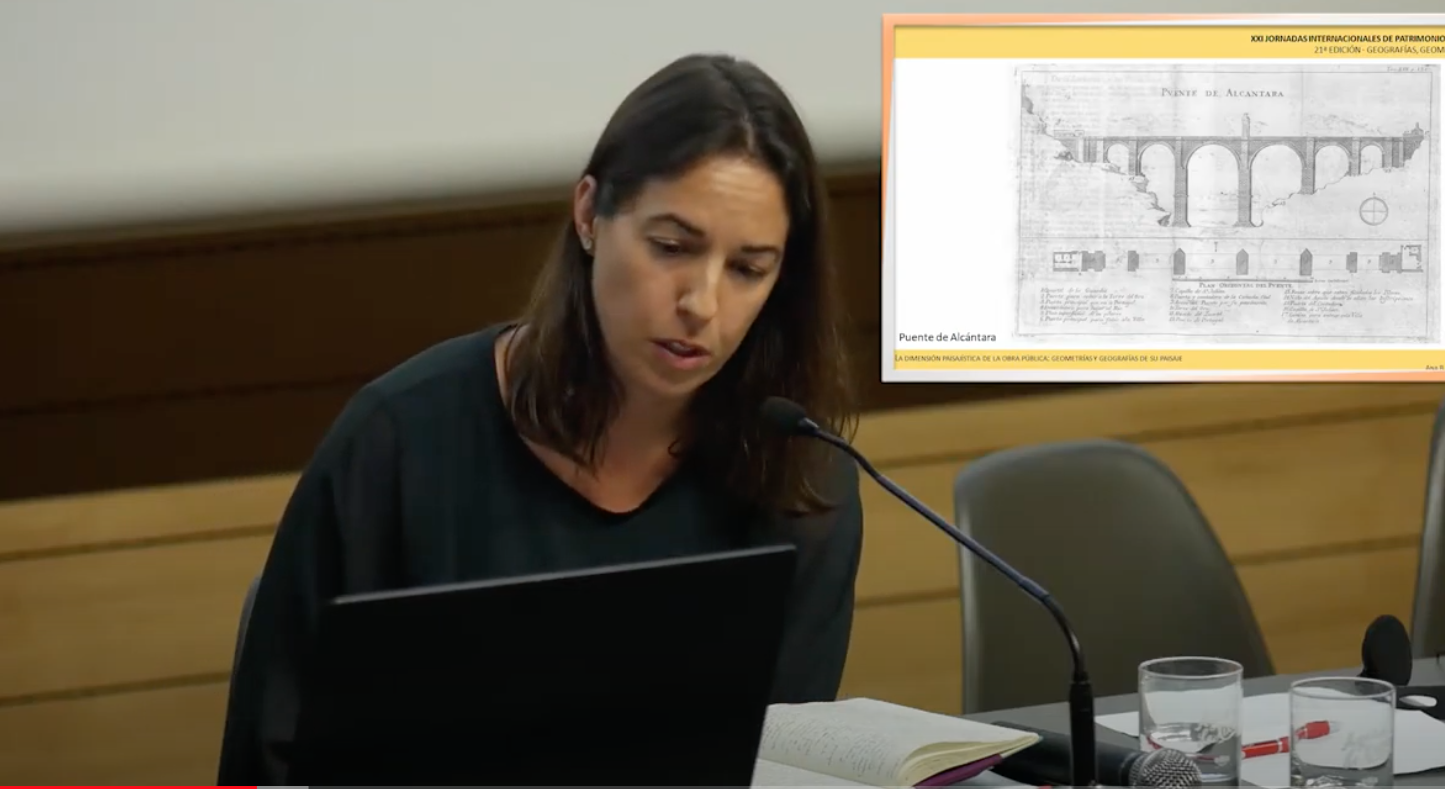
Ana Belén Berrocal Menárguez
Department of Transport Engineering, Territory and Urban Planning. ETSI Caminos, Canales y Puertos. Polytechnic University of Madrid.
Research Group: Paisaje Cultural (GIPC)
Lines of research: Landscape analysis and spatial planning, heritage landscapes of civil engineering, management of river space and its natural resources, environmental and landscape values of urban areas.
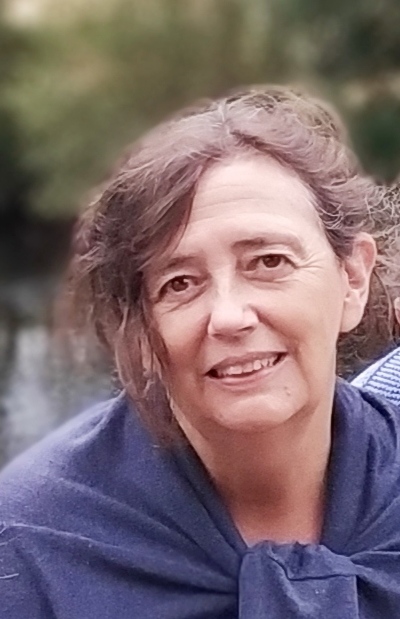
Ester Sáez Pombo
Lecturer in the area of Regional Geographical Analysis in the Department of Geography at the Autónoma University of Madrid.
Lecturer in the area of Regional Geographical Analysis. Department of Geography of the Autónoma University of Madrid
Research Group: PAYTEMAL (Paisaje y Territorio en España, Europa Mediterránea y América Latina
Lines of research: Reconstruction of the history of forest landscapes, focusing on heritage aspects (evolution of ownership, public and communal forests, etc.), management and use, and landscape dynamics, understood fundamentally as a human construction.
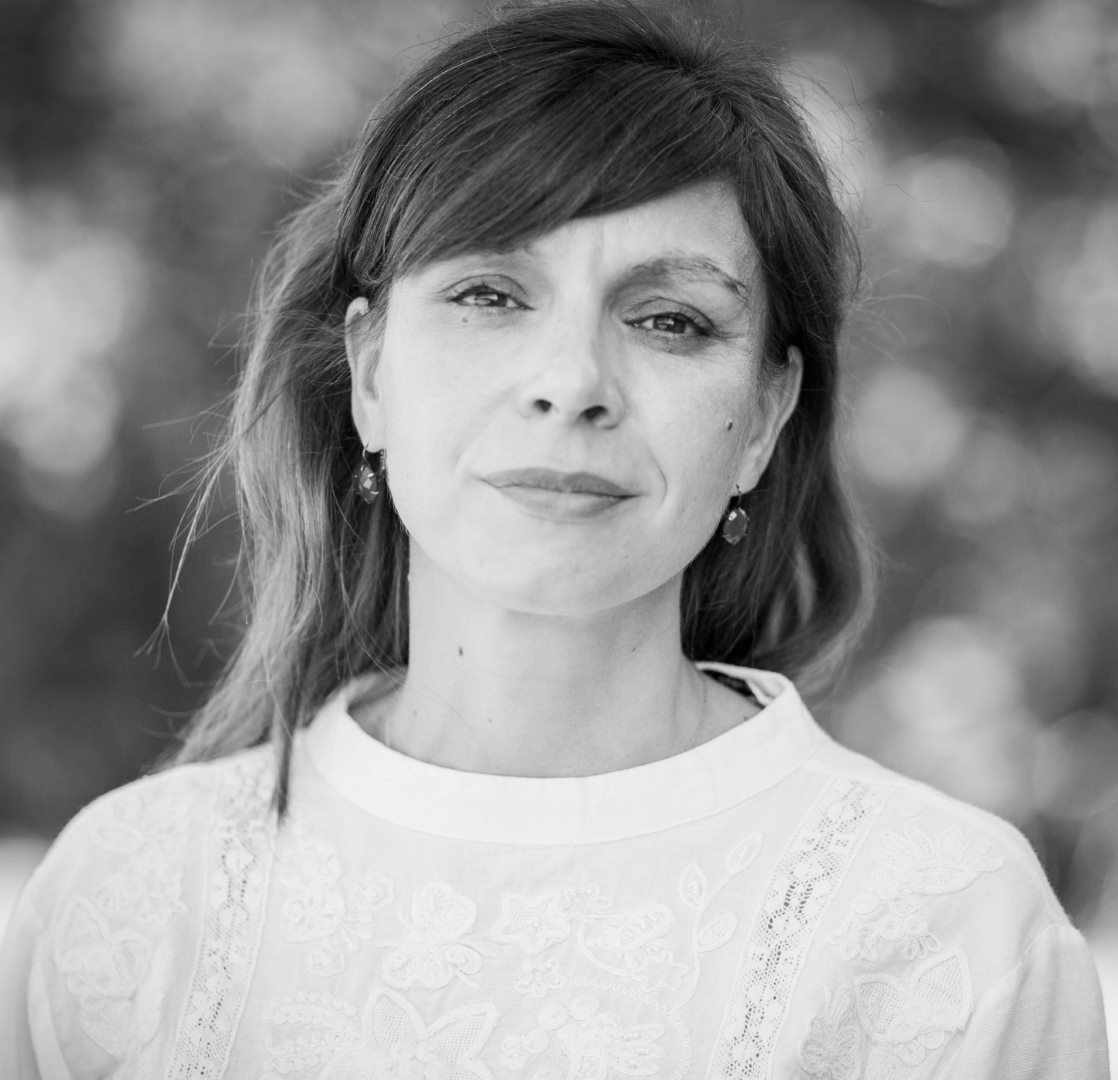
Esther Sanz Sanz
Architect specialised in Urbanism, Planning and Environment (Universidad Politécnica de Madrid, 2007). Double PhD in Geography and Urban Studies (Universidad Autónoma de Madrid and Ecole des Hautes Etudes en Sciences Sociales, France). Professional experience in spatial planning and urban design, in studios in Spain and France.
Investigadora postdoc en el Leibniz Centre for Agricultural Landscape Research (ZALF, Alemania, grupo de trabajo “Land Use Decisions in the Spatial and System Context” de Annette Piorr) y en el Institut National de la Recherche pour l’Agriculture, l’Alimentation et l’Environnement (INRAE, UR-Ecodéveloppement en Avignon, equipo de Claude Napoléone).
Lines of research: analysis of the functional and landscape dynamics of peri-urban agriculture in the Mediterranean and related land-use planning, with a view to developing institutional decision support tools for spatial and urban planning of sustainable food systems (i.e. Food Planning).
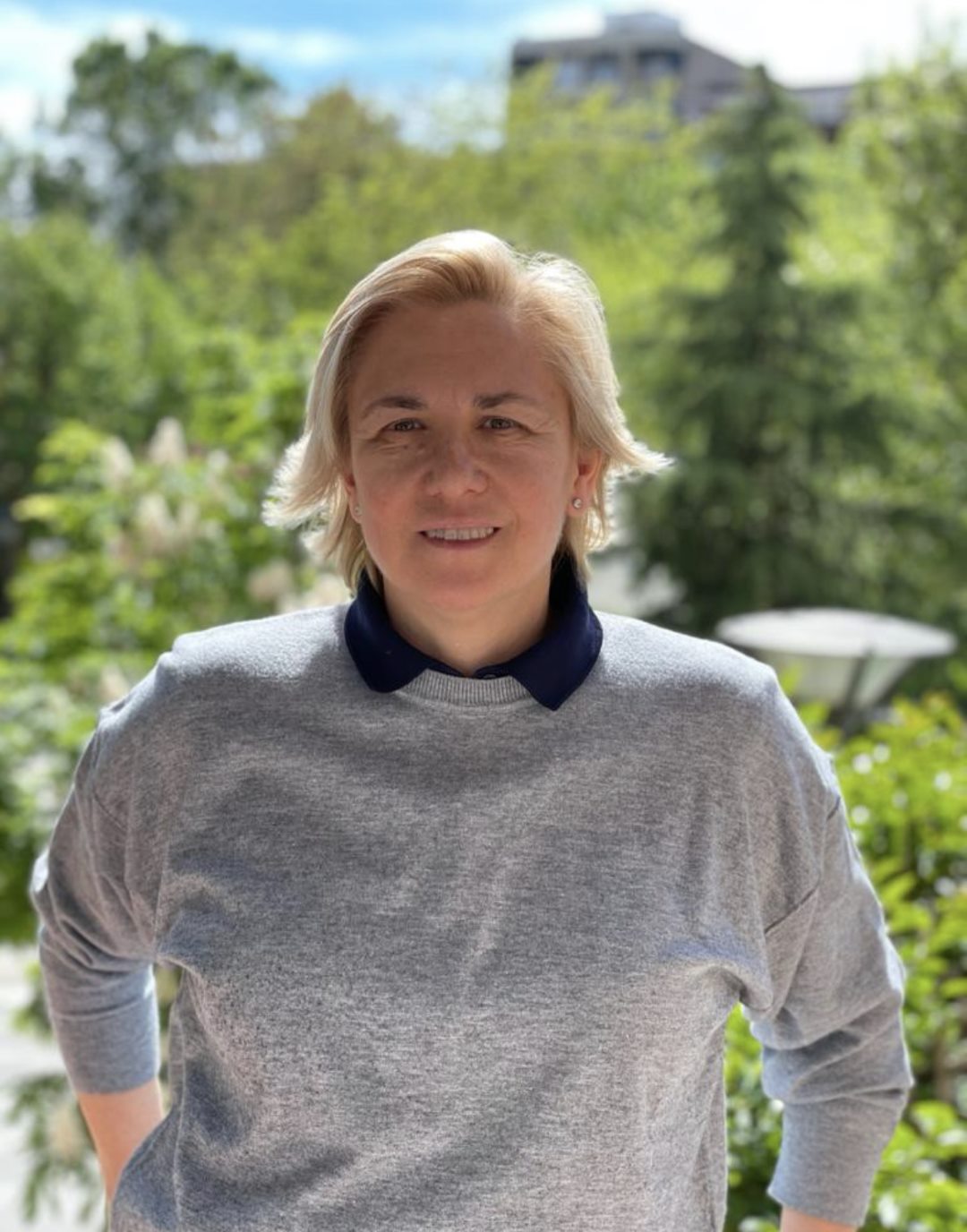
María del Carmen Cañizares Ruiz
Lecturer in Human Geography in the Department of Geography and Territorial Planning at the University of Castilla-La Mancha in the Faculty of Arts in Ciudad Real.
Lines of research: joint analysis of territory and heritage, with special attention to industrial (mining) and agricultural heritage, cultural landscapes (mainly mining landscapes and vineyard landscapes) and urban spaces and sustainability.
Research Group (Director): Territorial Development of Castilla-La Mancha (DETER) in which various topics on Castilla-La Mancha have been addressed, such as the Functional Urban Areas (FUAS) and regional polycentrism, together with the Agricultural Cultural Landscapes, at the present time.
Director of theCentro de Estudios Territoriales Iberoamericanos (CETI) of the University of Castilla-La Mancha based at the Albacete Campus (Faculty of Humanities) and researchers at all campuses of the regional university.
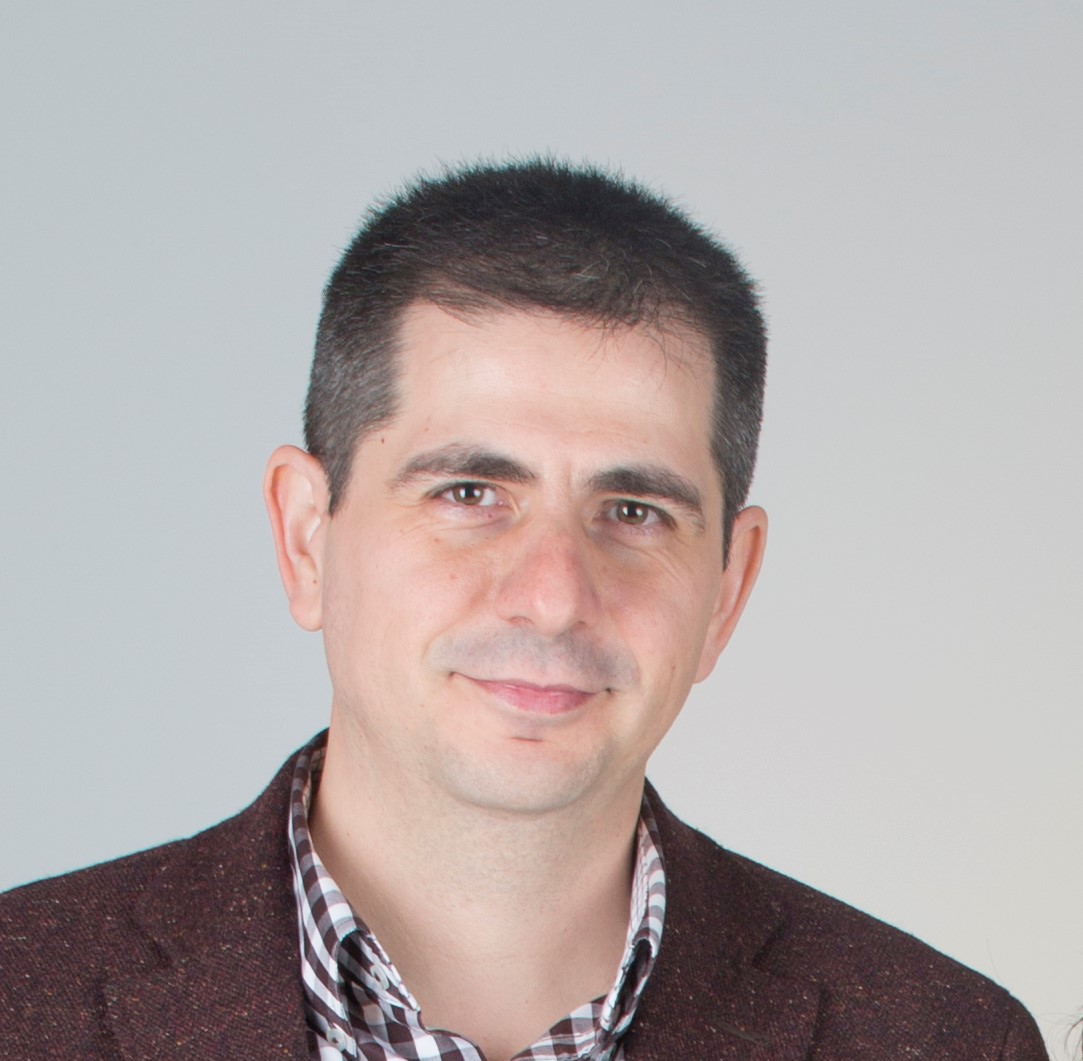
Ángel Raúl Ruiz Pulpón
Professor of Human Geography. Faculty of Arts (Ciudad Real). University of Castilla-La Mancha
Lines of research: study of agricultural landscapes, water management, environmental conservation, territorial development, the territorial value of agri-food certifications, and the phenomena of depopulation and depopulation
Member of the Centro de Estudios Territoriales Iberoamericanos (CETI), of the research group DETER (Territorial Development of Castilla-La Mancha) and of the Red Iberoamericana de estudios de desarrollo territorial y gobernanza (REDETEG) which brings together professors from Brazilian, Argentinean, Portuguese and Spanish universities.
Evaluator of Research Projects within the activities of the ANEP (Agencia Nacional de Evaluación y Prospectiva); of various national and international scientific journals, including, among others, the Boletín de la Asociación de Geógrafos Españoles, Cuadernos Geográficos, Cuadernos de Turismo, Miscellanea Geographica, Scripta Nova, etc.
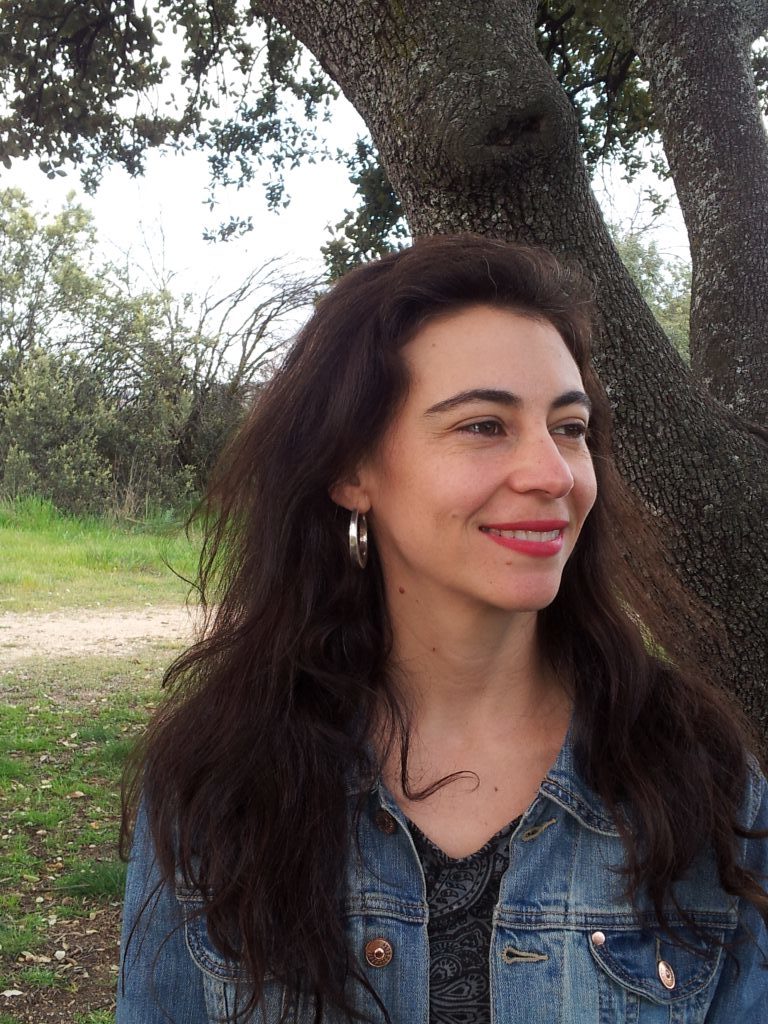
Carolina Yacamán Ochoa
Assistant Professor at the Department of Geography, UAM
Carolina Yacamán Ochoa is Assistant Professor at the Department of Geography at the UAM.
Research group. PAYTEMAL. Paisaje y Territorio en España, Europa Mediterránea y América Latina (UAM).
Lines of research: recovery of co-evolutionary relations between the urban and rural domains, integrating the study of sustainable agri-food systems, collective action and social innovation. Another important field of research is the analysis and design of policies for the conservation, management and planning of agricultural areas.
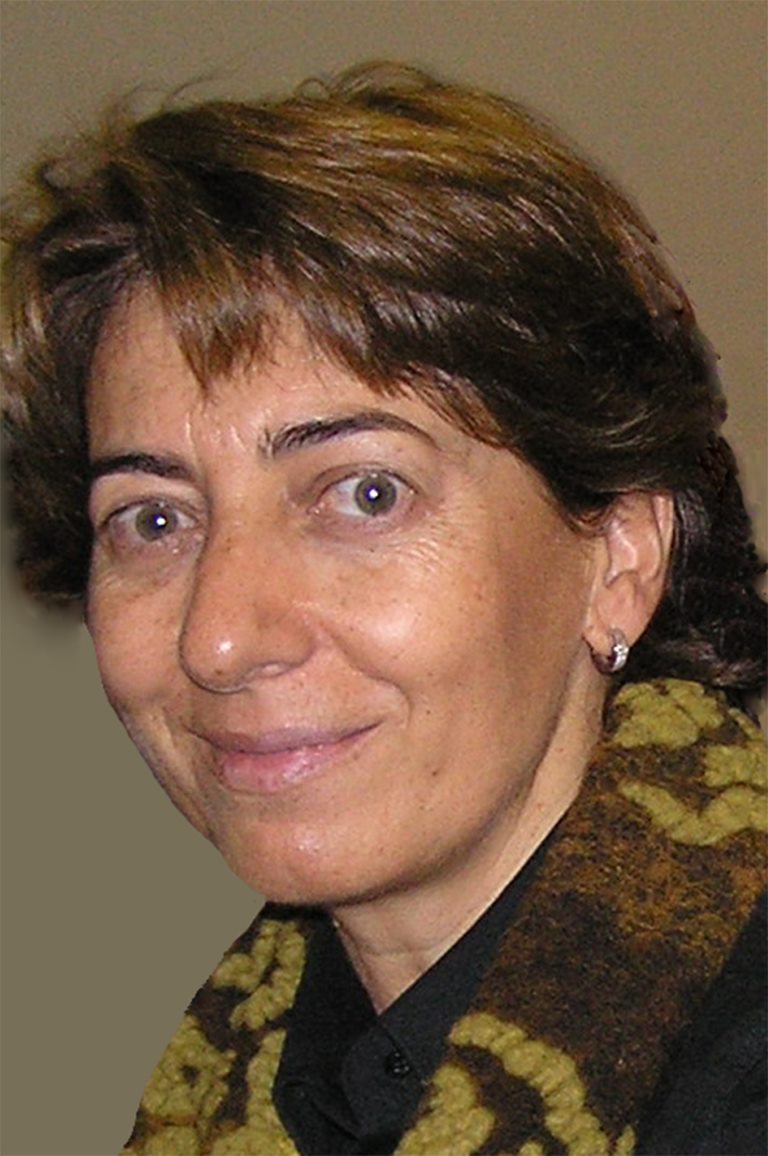
Emilia Martínez Garrido
Lecturer in the Department of Geography at the Autonomous University of Madrid.

Fernando Allende
Associate Professor at the Department of Geography of the Universidad Autónoma de Madrid
Degree in Geography and History (1994). PhD in Philosophy and Letters (2007). Master in Landscape and Territorial Management (1996).
Specialisation in climate and biogeography of the Central Cantabrian Mountains, Cantabrian forest landscapes, forest dynamics associated to Fraxinus and Juniperus in the Madrid region; as well as glaciers in the Svalbard archipelago (Norway). He is part of the CIEMAT-coordinated research team working on issues related to climate modelling and urban planning. He coordinates the GEOCLIMA Research Group of the Department of Geography of the UAM.
Research interests: Forest Landscapes, Glacial Geomorphology, Territorial Planning, Geographic Information Systems and Remote Sensing, Climate Modelling.
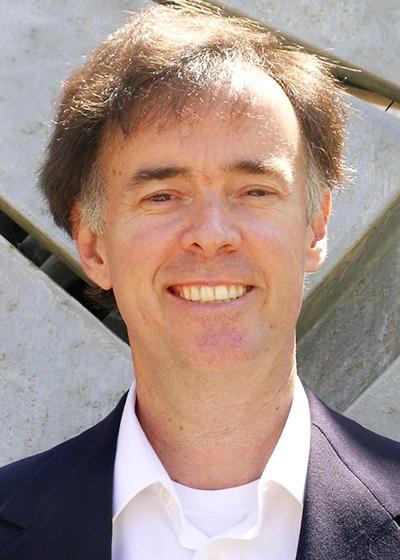
Karl Zimmerer
Full Professor, Department of Geography; Economics of Agriculture, Sociology and Education, Pennsylvania State University, USA
Research topics: resilience and territorial sustainability and food systems, agrobiodiversity models, landscape, sustainability and justice of smallholders and farmers, agrobiodiversity, etc.
He develops projects in Latin America, the United States of America and Europe (especially Spain), Africa and South and Southeast Asia.
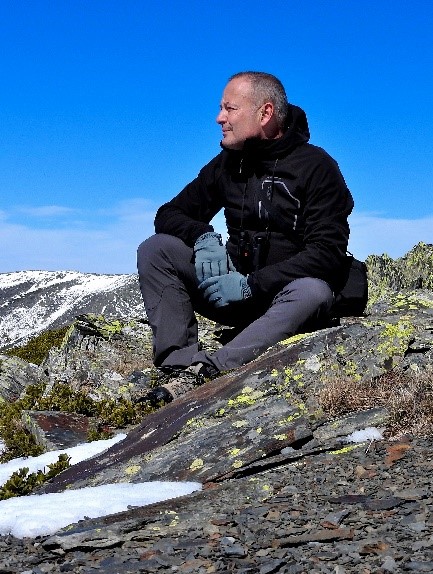
Pedro Molina Holgado
Associate Professor in the Department of Geography at the University Autónoma of Madrid
Geographer and naturalist, professor at the Universidad Autónoma de Madrid since 1998,
worked as an environmental consultant (1992-2006) prior to joining the
university on a full-time basis. His research is currently focused on
in the analysis, characterisation and conservation of biodiversity in river areas
urban areas, livestock trails and extensive livestock farming landscapes. He has participated in
19 research projects, 6 from the National R&D Plan and two funded by the European Union.
European Union, as well as in more than 30 research projects of particular relevance in
companies or in the administration. References can be found on their
publications in
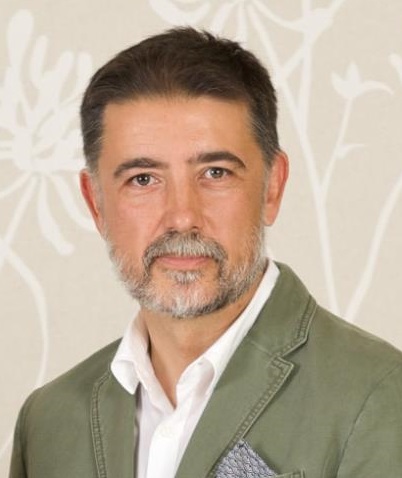
Daniel Ferrer
Assistant Professor at the Geography Department of the Autónoma University of Madrid,
Graduate in Geography and History from the UAM (1995) and Master in Landscape, Territory and Environmental Resources. Analysis and Management (1997). D. in Geography in 2003, with a thesis entitled “Conservación de la naturaleza y territorio en Chile. El Parque Nacional de Torres del Paine y su área de influencia socioeconómica” (UAM, 2003, director: Rafael Mata Olmo).
Research Group: PAYTEMAL (Paisaje y Territorio en España, Europa Mediterránea y América Latina)
He has extensive professional experience in the field of spatial planning, having been awarded in 2015 the 1st Prize for Urban and Spatial Planning of the Autonomous Community of Extremadura, for the work “Study and strategy for the landscape of Trujillo and its Land. Guidelines for the Municipal Management Plan”.
His scientific production is mainly related to the research line on rural systems and landscapes, heritage landscapes and peri-urban agriculture, in which he participates under the direction of Rafael Mata Olmo.
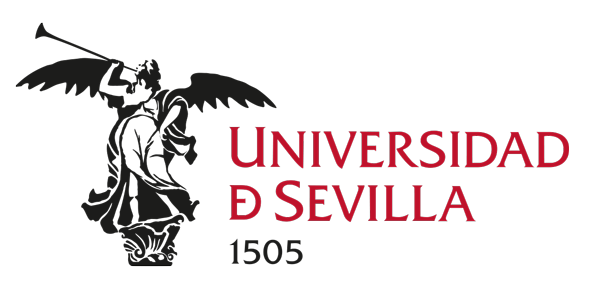
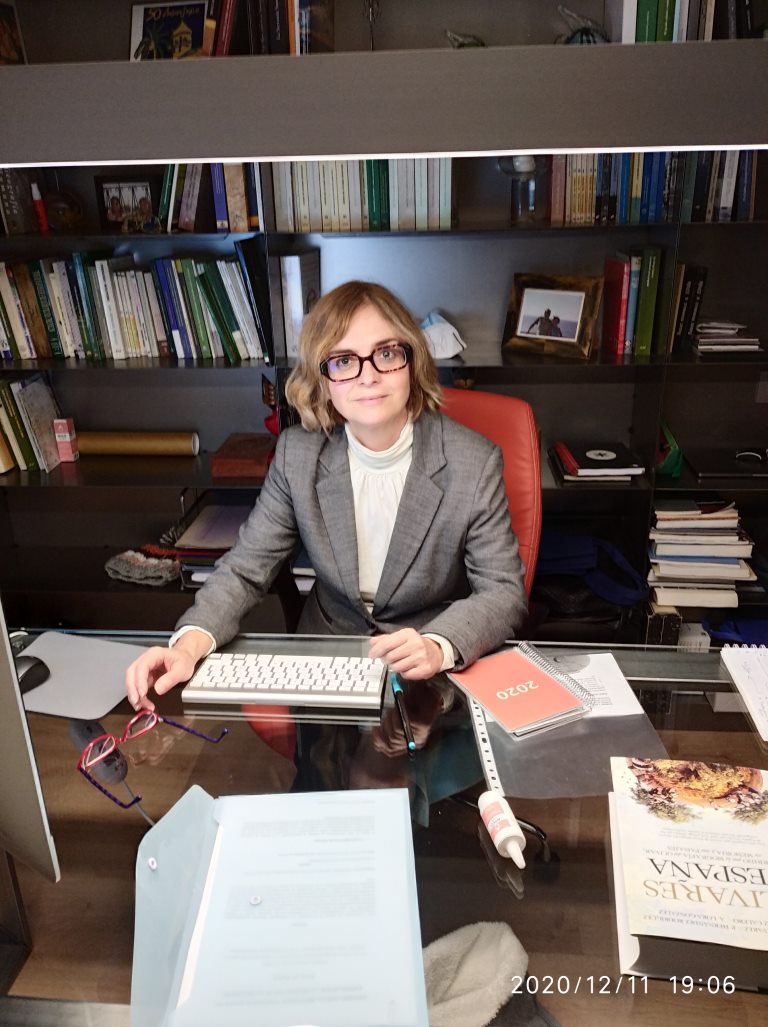
Rocío Silva · Principal Investigator
Professor of Regional Geographical Analysis in the Department of Human Geography, University of Seville.
Lines of research: Multifunctional and territorialised agri-food systems (SAMUTER); agricultural and rural multifunctionality; landscapes, cultural landscapes; Unesco territorial heritage programmes; extensive livestock farming pastures and protected natural areas.
She has directed and participated in numerous R&D&I projects on these topics and has a large number of publications. His current research focuses on the study of agri-food systems and their contribution to territorial development, with a particular emphasis on the role of agriculture in the provision of heritage and landscape assets.
She has served on the Board of Directors of the Association of Spanish Geographers and is a member of the Board of Directors of the Landscape Group.
She is a member of ICOMOS-Spain and has been a member of its Board of Directors.
She has advised on many landscape nominations for the Unesco World Heritage List, including “The vineyard landscapes of La Rioja Alavesa”, “Ribera Sacra” and “Cultural landscapes of the olive grove in Andalusia”.
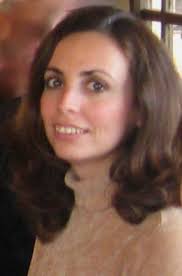
Gema González Romero Principal Investigator
Lecturer in the Department of Human Geography. University of Sevilla
Research Group: Geography and Regional and Urban Development HUM- 177.
Lines of research: Multifunctional and territorialised agri-food systems, territorial models of innovation, local production systems and territorial development.
She has participated in 12 research projects, all obtained in competitive public calls, with European, US, state and regional funds (DG XIV European Commission -III EU Framework Programme; Commission of the European Communities-DG Fisheries – Research Unit, DG XXII European Commission and Department of Education USA, Plan Estatal I+D+i and IEA). It has also participated in 6 research contracts with public and private companies and regional organisations. Her research and work has received various mentions.
She has held academic responsibilities in the coordination of several official university master’s degrees (Erasmus Mundus in Marine Spatial Planning -Universities of Venice, Azores and Seville-; Territorial Management. Instruments and Intervention Techniques, University of Seville).
Scopus: 56081666300
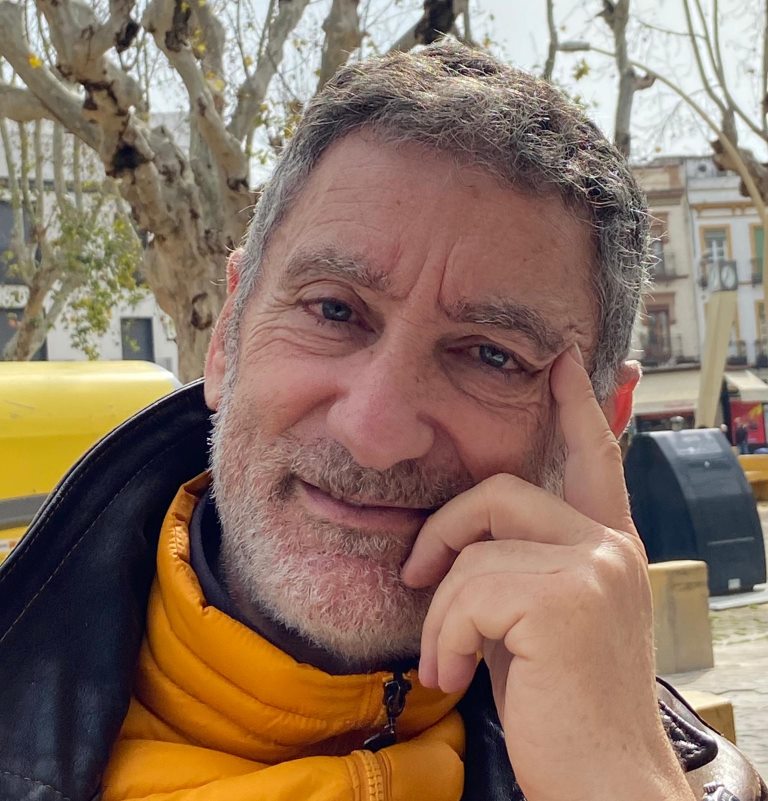
Víctor Fernández Salinas
Professor of Human Geography, Department of Human Geography at the University of Seville.
Lines of research: heritage and cultural landscapes, historic cities and social geography.
Geography and Rural and Urban Development Research Group.
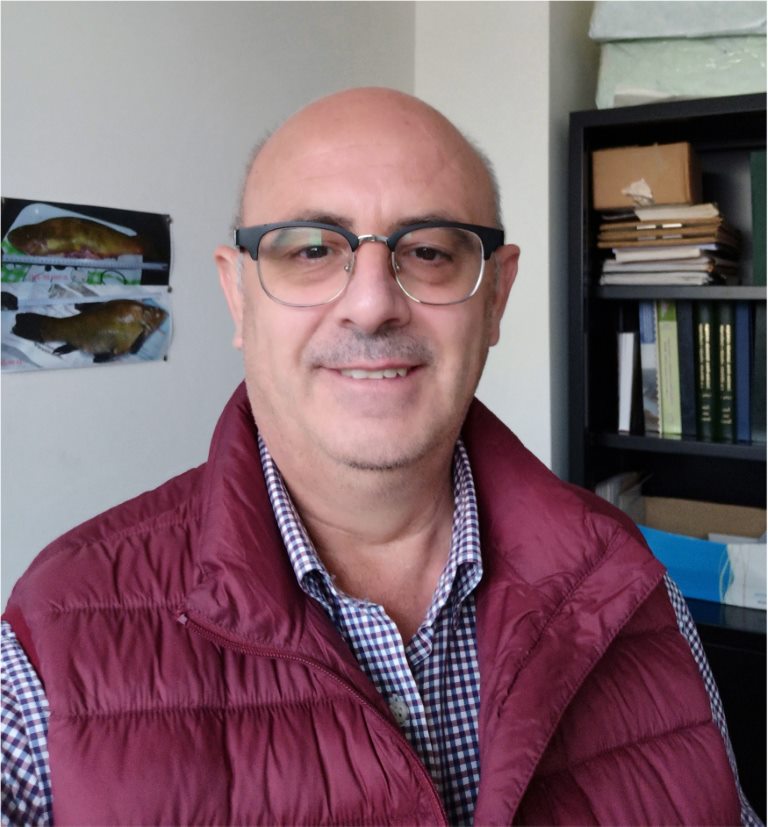
Felipe Leco Berrocal
Professor of Human Geography in the Faculty of Philosophy and Arts at the University of Extremadura in Cáceres.
He is currently Director of the Heritage Research Institute of the UEx. He has also been Academic Coordinator of the Master’s Degree in Rural Development since the 2006-07 academic year. He was Director of the Department of Art and Territorial Sciences at the University of Extremadura from 2008 to 2016 and, on the other hand, Member of the Scientific Committee of the Autonomous Body of National Parks (2012-2016).
He is a principal researcher at the Rural and Local Development Study Group. (Sistema Extremeño de Ciencia, Tecnología e Innovación, SECTI) sice 2004.
Lines of research: rural development, demography, heritage landscapes and tourism.
SCOPUS Author ID (*): 7801416649
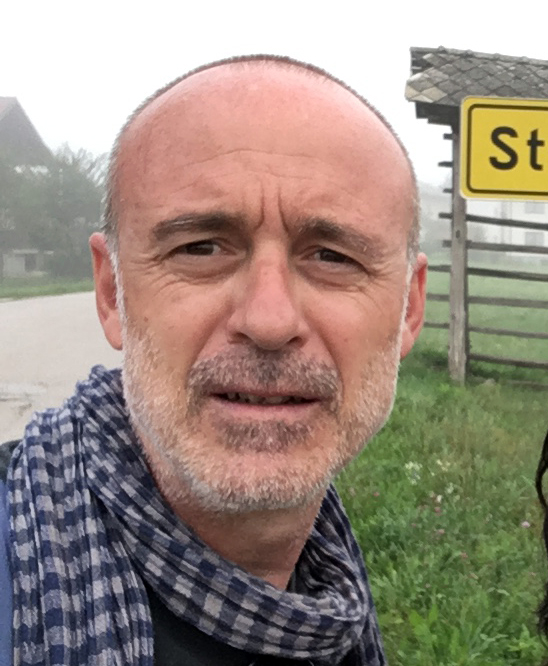
David López Casado
Lecturer in the Department of Human Geography at the University of Seville.
With a degree in Technical Architecture from the University of Granada, a degree in Humanities from the University of Cordoba and a PhD in Geography from the University of Seville, he is a lecturer and researcher in the Department of Human Geography at the University of Seville.
Research Group: GDRU (HUM-177
main lines of research: suburbanisation processes, social and urban geography, as well as heritage and landscapes of cultural interest.
He teaches on the Geography and Territorial Planning degree, as well as on the University of Seville’s official master’s degree in Territorial Management. Intervention Instruments and Techniques. His professional career has been linked for more than twenty years to the fields of urban planning and heritage; in the former as a technician in urban and regional planning in various municipalities; and, in the latter, as a technical advisor in the Technical Office for the Management of the Special Plan for the Protection of the Archaeological Site of Medina Azahara. He is a member of the Spanish National Committee of Icomos.
Scopus: 57221775433
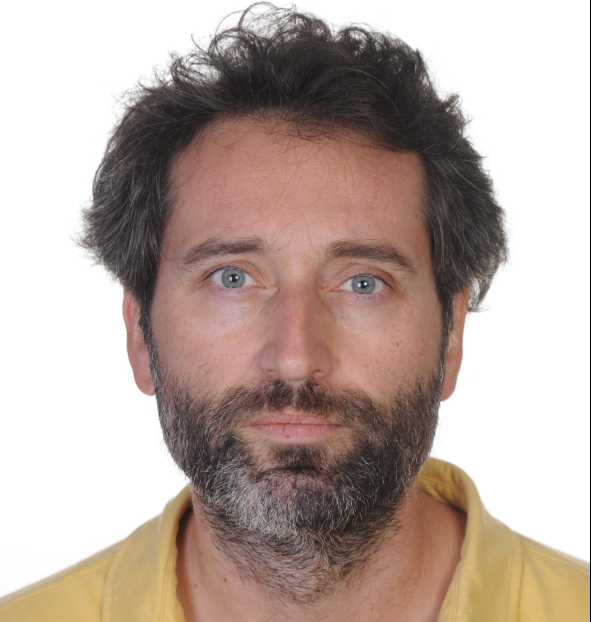
Fulgencio Cánovas García
Assistant Professor at the Department of Geography, History and Humanities of the University of Almeria.
Inter-university research group of excellence: Estructuras y Sistemas Territoriales (HUM 396).
Its lines of research are related to digital processing of satellite images, quantitative estimation of precipitation from remotely sensed images, digital image classification and, from June 2020, territorialised agricultural systems.
He completed his PhD (2012) and undergraduate studies (2002) at the University of Murcia and has been a lecturer and researcher at three Ecuadorian universities (UNESUM, University of Cuenca and Universidad Técnica Particular de Loja) and three Spanish universities (Universidad Politécnica de Cartagena, University of Seville and University of Almería).
Web of Science ResearcherID: Y-8080-2019
Scopus Author ID: 55815878800
Google Scholar Id: r_aGMcAAAAJ
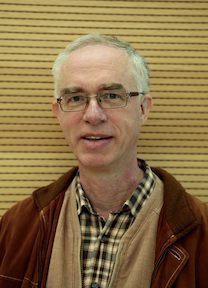
Andreas Voth
Professor at the Department of Economic Geography at RWTH University
He teaches in the department of Economic Geography at the Universidad Técnica de Aquisgrán (RWTH Aachen) Germany.
Main courses. Major Seminar on Economic Geography (WS/SS), Map Interpretation Exercise (WS), Conference on Tourism Geography (WS), Conference on the Promotion of Rural Areas (WS), Conference on Geostatistics (WS), ect.
Research interests: Rural geography, Development of rural areas in Europe, Regional development in Latin America, Research on geographical innovation and diffusion.
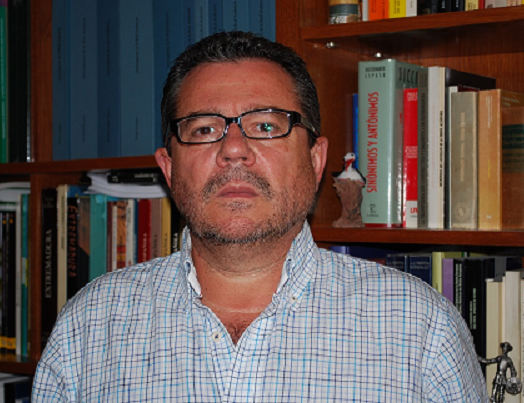
Antonio Pérez Díaz
Dpto. Art and Territorial Sciences. Faculty of Philosophy and Arts. University of Extremadura
Lines of research: landscape, functioning, changes and problems of the dehesa, difficulties and potential of the commercialisation of quality products, agrotourism, renewable energies and their territorial impact, rural development, migratory movements and population and rural depopulation.
has published more than seventy papers in books and scientific and popular science journals, as well as participating in numerous scientific conferences and symposia. Participation, either as Principal Investigator or as collaborator, in Research Projects related to the aforementioned lines should also be noted.
Research Group: GEDERUL (Grupo de Estudios sobre Desarrollo Rural y Local Espacios de Frontera – Study Group on Rural and Local Development in Border Areas)
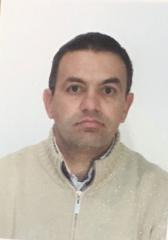
M. David García Brenes
Department of Applied Economics II. Escuela Técnica Superior de Ingeniería Agronómica. University of Sevilla
Research Group: AREA Regional Analysis: Andalusian Economy. SEJ217.
Research areas/topics: Agri-food Industry, Value Chain, Olive Oil. Utrera Road km 1, 41013 Sevilla
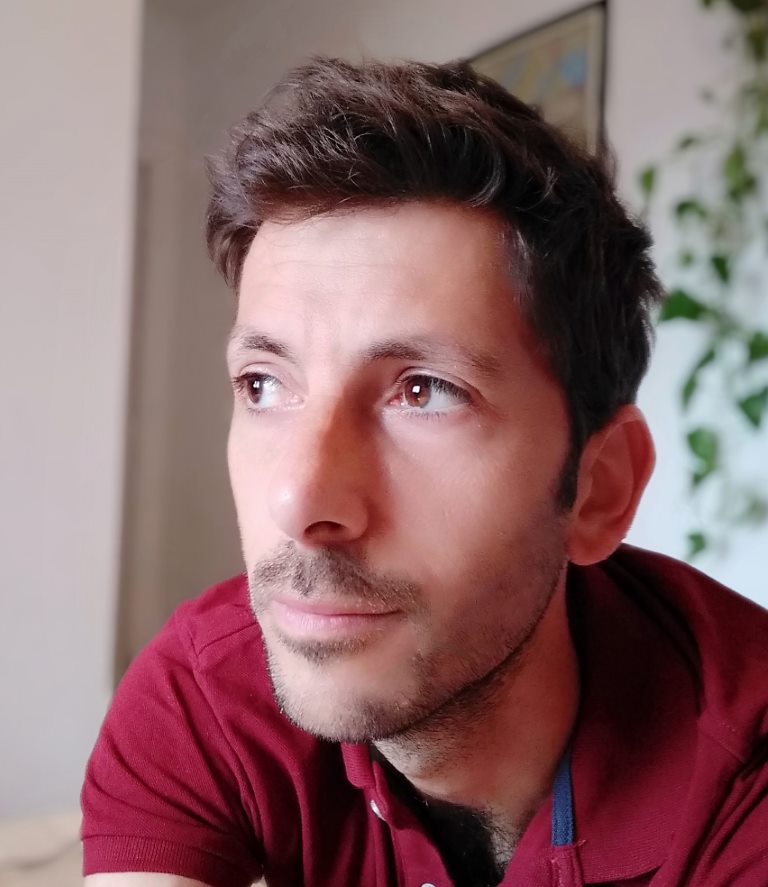
Miguel García Martín
Lecturer in the Department of Human Geography at the University of Seville.
PhD in Geography and lecturer in the Department of Human Geography at the University of Seville. His teaching and research orientation is broad and heterogeneous, as befits his multidisciplinary background.
Research group. Territorial Structures and Systems (HUM396)
Lines of research: mainly in the fields of cultural geography, landscape and environment. He has also carried out research on tourism, rural heritage, urban and metropolitan spaces, consumer society and geographic education.

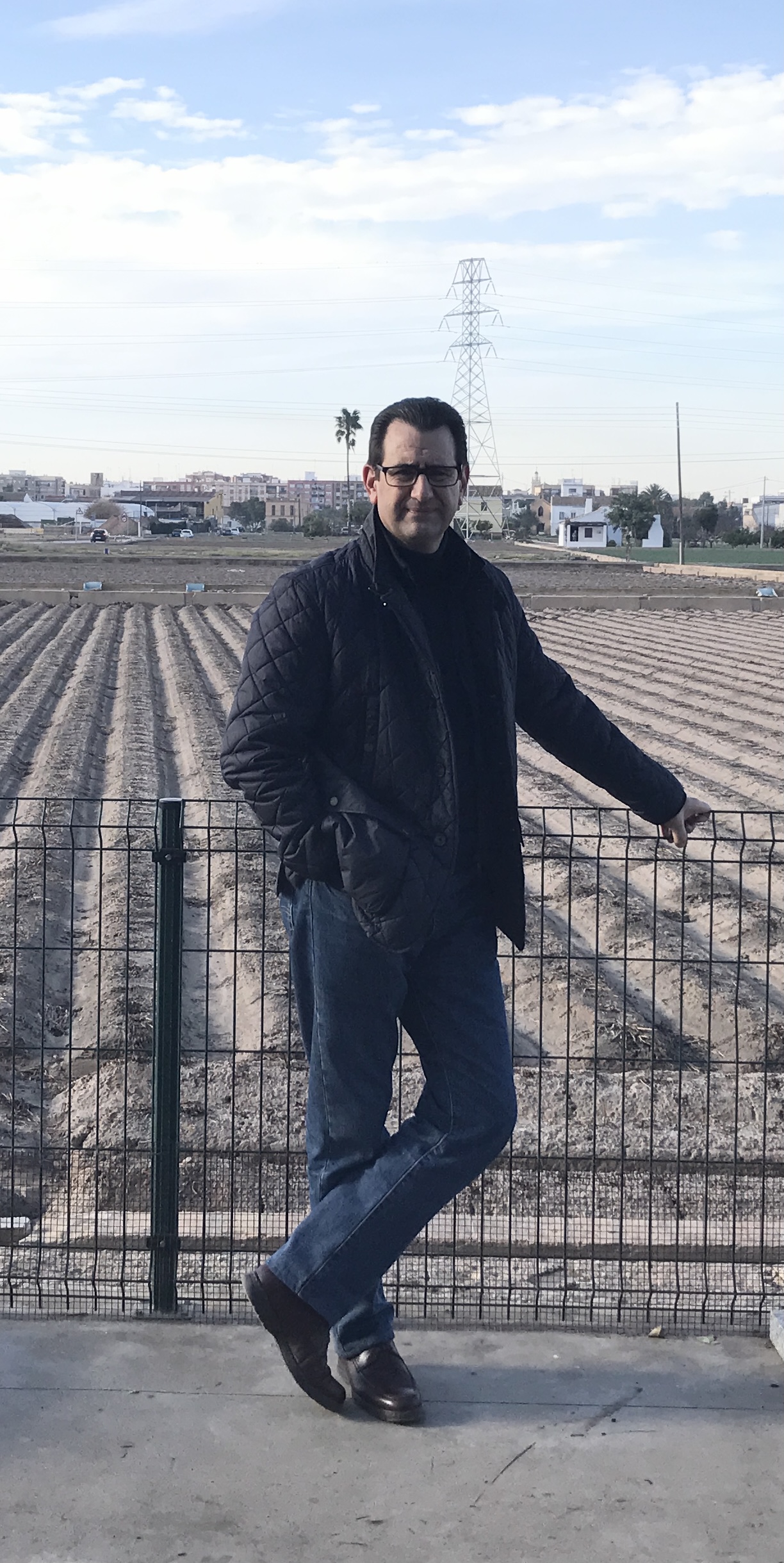
Jorge Hermosilla · Principal Investigator
Professor of Regional Geographical Analysis at the University of Valencia. Department of Geography. University of Valencia
Lines of research: Strategic planning and territorial development; analysis of cultural heritage, in particular hydraulic heritage and historical irrigation; analysis and evaluation of cultural landscapes.
Director of the ESTEPA research unit (Territory, Heritage and Landscape Studies) and co-director of the AVANT-Anti-depopulation Valencian Institutional Chair.
Director of the Master’s Degree in Cultural Heritage at the Faculty of Geography and History of the UV (2003-2012), and director of three editorial collections at national and regional level on landscape and water heritage.
Principal investigator of more than 130 projects, including 9 competitive and 4 international projects. Research has been carried out mainly in the Valencian Community, at the national level and in Tunisia.
Co-author of over 50 books and more than 30 articles.
He has been Dean of the Faculty of Geography and History (2002-2009) and Vice-Rector of Territorial Projection (2010-).
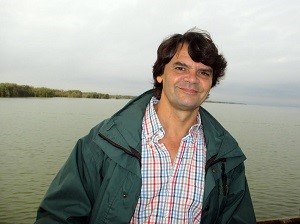
Emilio Barba
Professor of Ecology at the Universitat de València (UVEG)
PhD in Biological Sciences, Master in Environmental Management and Master in Environmental Impact Assessment Studies. He is currently a Professor of Ecology at the Universitat de València (UVEG). He is Co-Director of the AVANT Chair (Valencian Anti-depopulation Agenda), and Head of Initiatives of the Vice-Rectorate for Participation and Territorial Projection of the UVEG.
His research activity is carried out at the Cavanilles Institute of Biodiversity and Evolutionary Biology of the UVEG.
Research Group (Dirctor): Ecology of Terrestrial Vertebrates.
Research interests: behavioural ecology and ecology of bird populations, as well as human impacts on the environment.
He has published 75 scientific articles in international journals, supervised 7 doctoral theses, and directed and participated in numerous research projects and contracts with the Administration and companies. He has been accredited with 4 Sexenios of Research and 1 of Transfer. Its h-index is 22 (WoS).
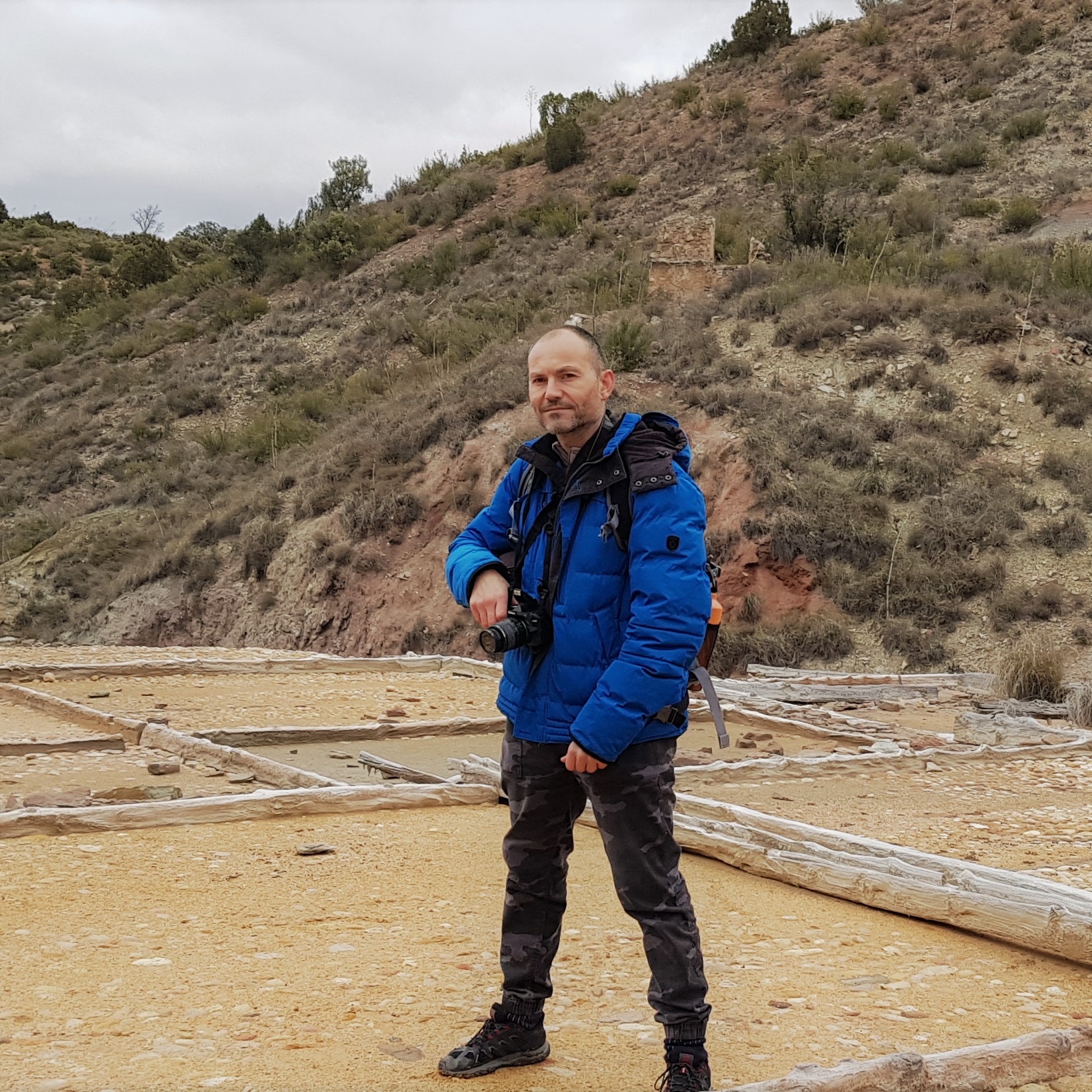
Emilio Iranzo
Associate Professor. Area of Human Geography. Departament de Geografia de la Universitat de València.
Lecturer at the Department of Geography of the University of Valencia since 2010
Research Group: ESTEPA (Estudios del Territorio, Paisaje y Patrimonio) since 1999.
He is currently Vice-Dean of Culture and Student Participation at the Faculty of Geography and History of the UV. And since 2016 he is Director of the Institutional Chair ‘Citizen Participation and Valencian Landscapes’ at the University of Valencia, funded by the Generalitat Valenciana.
Lines of research: Study of landscape and its meanings; landscape, tourism and development; enhancement of natural and heritage landscapes.
Chair of Citizen Participation and Valencian Landscapes – Universitat deValència
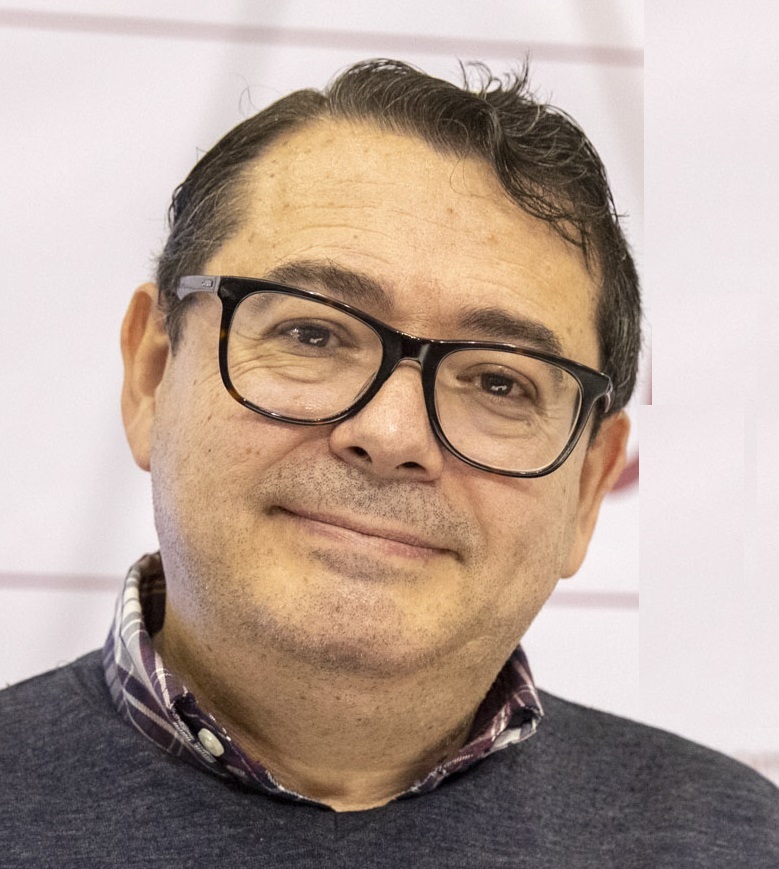
Francisco Higón
University Lecturer in the Department of Applied Economics at the University of Valencia
Degree in Economics (Universitat de València) [1984-1989] and PhD in Economics (Universitat de València)[1996]. Visiting Professor in the Environmental Department of the University of York (UK) and in the Department of Applied Economics of the University of La Laguna.
Research Groups: Public Economics Research Group and EVALPUB (Public Economic Evaluation Research Group).
Thematic lines: Public Economics, Environmental Economics, Taxation, Food & Wine Economics, Digital Economics
Member of ASEPELT (International Association of Applied Economics)
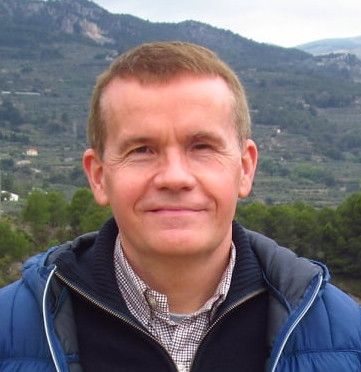
Joan Carles Membrado-Tena
Lecturer in the Department of Geography at the Universitat de València.
Specialist in toponymy, cartography, GIS, landscape, territorial organisation and economic geography (Mediterranean orchards, industrial clusters, residential tourism). He worked for ten years at the Institut Cartogràfic Valencià. He currently teaches the Geography degree courses ‘Geography and Environment in Africa’ and ‘Geography of the Valencian Country’; ‘Heritage Typologies: Landscape and Heritage’ in the university master’s degree in ‘Cultural Heritage: Identification, Analysis and Management’; or ‘Modelling and GIS Techniques’ in the university master’s degree in ‘Techniques for the Management of the Environment and Territory’. Translated with www.DeepL.com/Translator (free version)
He is co-director of the Chair ‘Horta de València: Territori Metropolità’.
Research group: ESTEPA (Territory, Landscape and Heritage Studies).
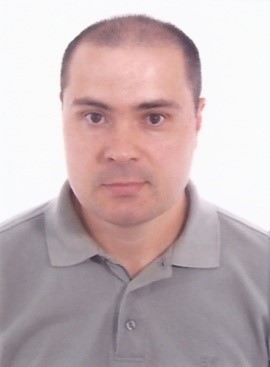
Miguel Antequera
Associate Professor of the Department of Geography at the University of Valencia, in the Area of Human Geography.
PhD in Geography. In 1999 he began his research activity in the ESTEPA Unit (Territory, Landscape and Heritage Studies) of the Department of Geography of the University of Valencia.
Lines of research: drainage galleries, traditional irrigation systems, heritage evaluation and territorial tourism resources.
He has been involved in numerous research projects, including the European projects “.Foggara Inventario, análisis y valorización de las técnicas hídricas tradicionales de los túneles de drenaje europeos y saharianos”. (2003 – 2006) and “Museos y comunidad: conceptos, experiencias y sostenibilidad en Europa, América Latina y el Caribe” (EU-LAC-MUSEUMS) (2017-2020) and the R+D+i projects”Drainage galleries: study, evaluation and revaluation of a unique element of water heritage in the Júcar river basin (Teruel, Cuenca, Albacete and Valencia).” (2007-2011).
He has directed a dozen Final Degree Projects in the degrees of Tourism and Tourism and Business Administration and Management.
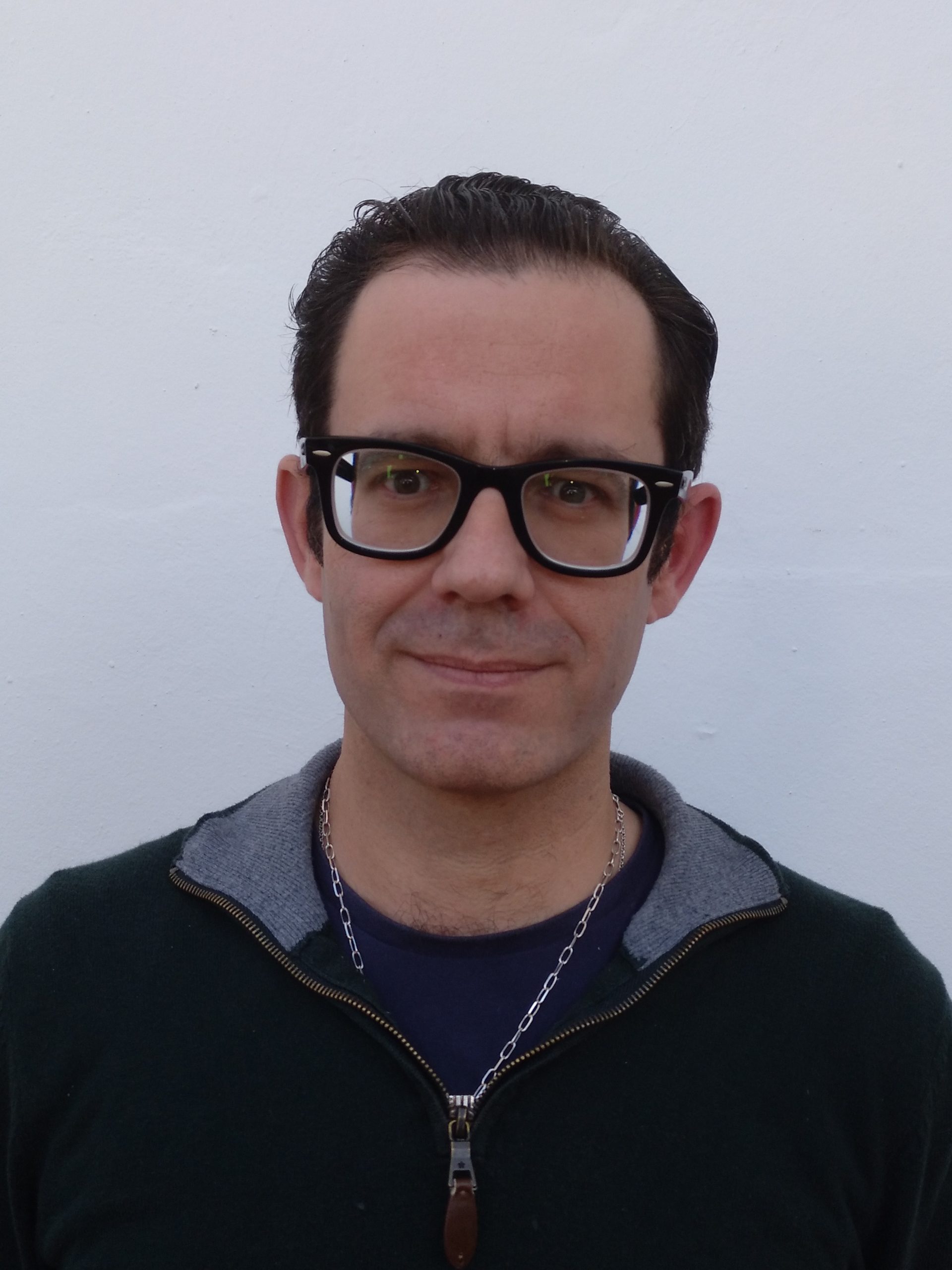
José V. Aparicio
Graduate in Geography and Master in Territorial, Environmental and Urban Planning.
Research group: ESTEPA (Estudios del Territorio, Paisaje y Patrimonio) of the Departament de Geografía de la Universitat de València.
Lines of research: cultural heritage, historical traditional irrigation systems, water galleries, strategic plans, local histories and Valencian territory in general.
He was part of the creation of the Creation of the Centre for Mediterranean Studies of water galleries and associated landscapes. In addition, he has been involved in science and innovation, sustainable development and environment and entrepreneurship activities. He is also an automatic mapping and database technician. He has participated in more than twenty publications related to the above-mentioned topics, as well as in the preparation of the relevant cartographies for each of them.
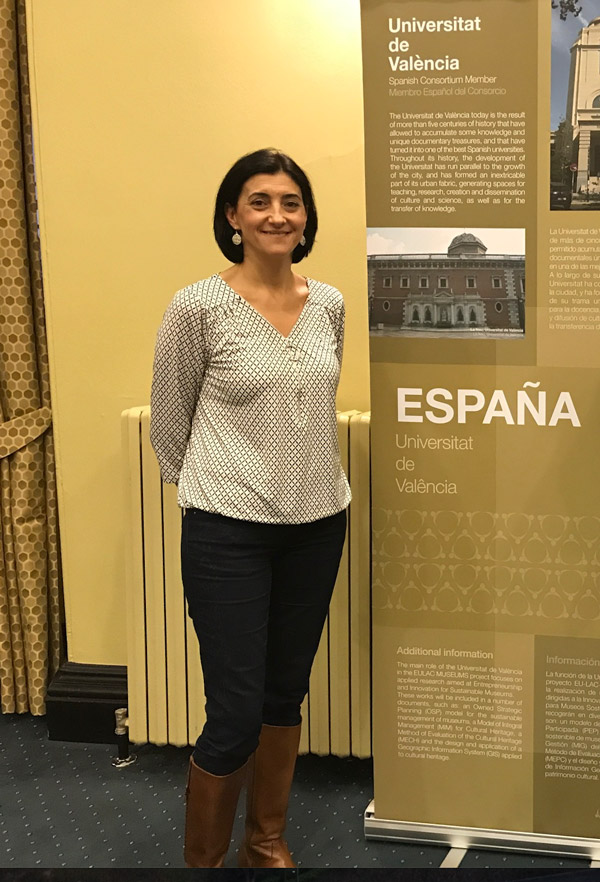
Mónica Fernández Villarejo
Department of Geography of the University of Valencia
He belongs to the research unit ESTEPA, Territory, Landscape and Heritage Studies, of the Department of Geography of the Universitat de València Spain since 2004.
Graduate in Economics and Business Studies from the University of Cadiz (1988-1993). Graduate in Economics and Business Studies from the University of Cadiz (1988-1993).
Lines of research: strategic planning, at local and international level; territorial development, in particular innovation; Valencian hydraulic heritage and Valencian tourism resources.
She has significant experience in research project management. She is co-author of several publications, book chapters and articles.
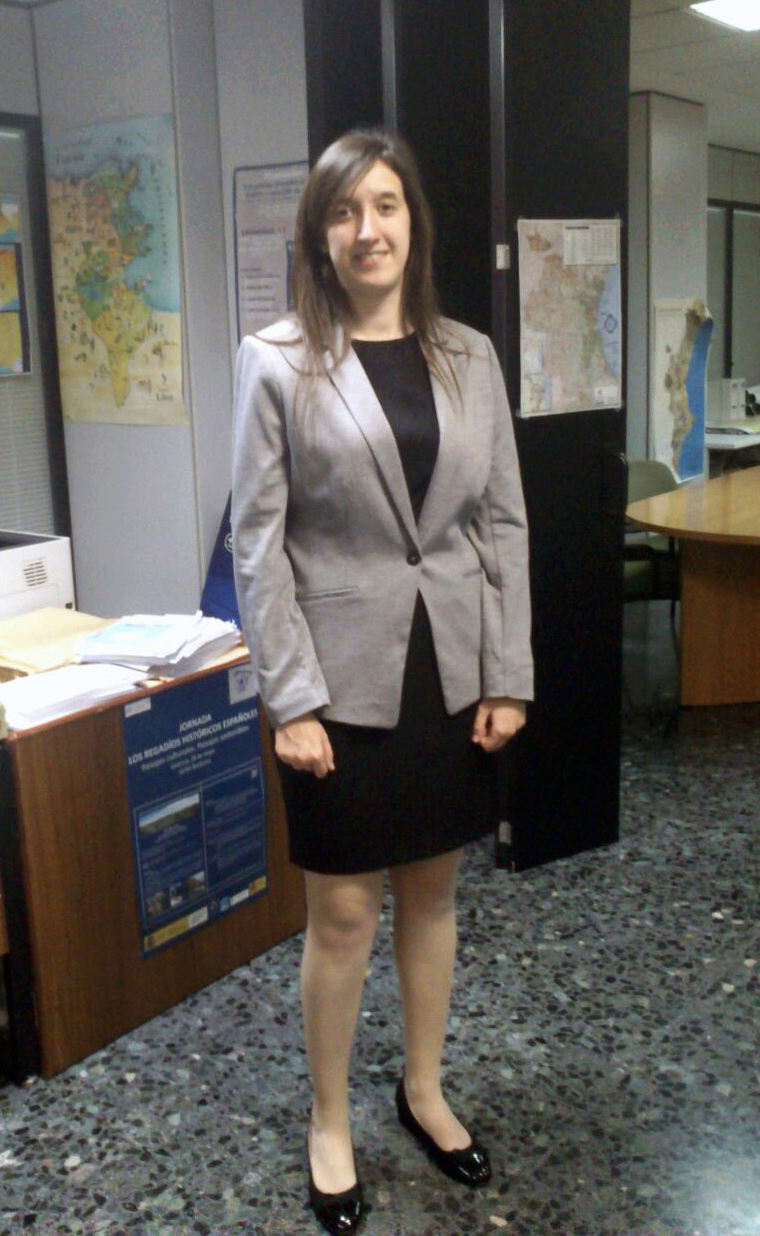
Sandra Mayordomo Maya
Associate Professor of Regional Geographical Analysis in the Department of Geography at the University of Valencia.
PhD in Geography. In 2010 he began his research activity in the ESTEPA Unit (Territory, Landscape and Heritage Studies), of the Department of Geography, at the University of Valencia.
Lines of research: traditional irrigation systems and land use planning.
In 2013 he obtained a scholarship for graduates at the National Geographic Institute, in the General Subdirectorate of Geodesy and Cartography. The main skills acquired at this stage relate to the verification of high-resolution layers, land cover changes and geographical databases. Since 2014, she has been working again as a researcher at the ESTEPA Unit, specialising in heritage assessment and strategic territorial planning.
She has participated in multiple research projects, several of which are R&D&I. She has published around fifty references, including books, book chapters and articles in specialised journals.
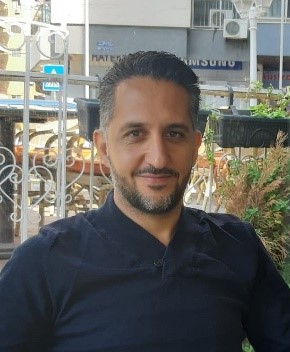
Ghaleb Fansa
Professor of Geography Department of the University of Valencia
Degree in Geography from the Faculty of Arts, University of Aleppo (Syria). PhD from the Universitat de València. University expert in Geographic Information Systems and Cartography.
ESTEPA research group (Territory, Landscape and Heritage Studies) of the Department of Geography of the Universitat de València Spain since 2010.
Lines of research: landscape and heritage. Expert in Arabic toponymy.
He currently teaches Geographic Information Systems in the Degree of Geography and Environment, at the Department of Geography of the UV.
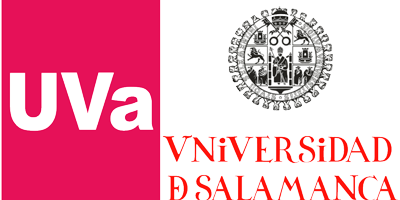
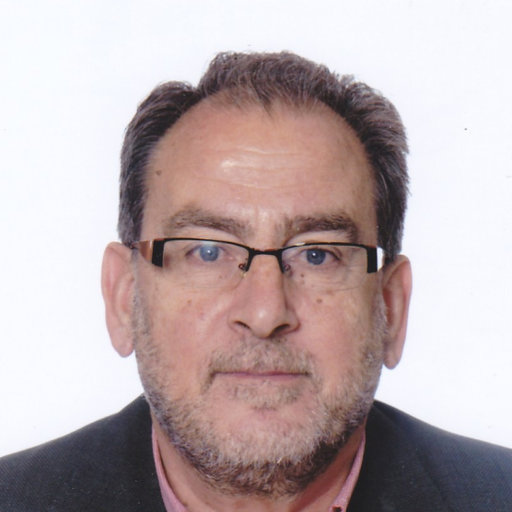
Juan Ignacio Plaza Gutiérrez · IPrincipal Investigator
Catedrático de Análisis Geográfico Regional de la Universidad de Salamanca. Department of Geography.
Juan Ignacio Plaza Gutiérrez (Palencia, 1959) is, since January 2007, Professor of Regional Geographical Analysis in the Department of Geography at the University of Salamanca.
TEIDE research group (“Territorio, Innovación y Desarrollo”), a research group recognised by the University of Salamanca.
Lines of research: study of natural landscapes and their dynamics, especially in mountain areas; the evolution and changes of rural areas, with special attention to the problems of depopulation; border areas and models of territorial organisation and their evolution; regional development, territorial policies and the regional policy of the European Union; as well as subjects related to heritage and territory.
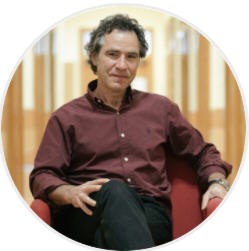
Eugenio Baraja Rodríguez · Investigador Principal
Professor of Regional Geographical Analysis at the University of Valladolid. Department of Geography.
He teaches at the University of Valladolid on the Geography and Territorial Planning Degree.
Research Group (Coordinator): Rural World.
Preferential lines of attention in his research work: rural spaces, agricultural activity, landscape and territorial heritage.
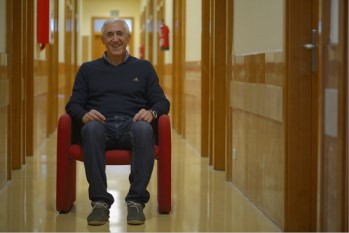
Fernando Molinero Hernando
Professor of Regional Geographical Analysis in the Department of Geography. Honorary Professor Emeritus. University of Valladolid.
It belongs to the research group. Rural world
The main lines of research in which he has worked are: Space, dynamics and rural development. Rural environment.
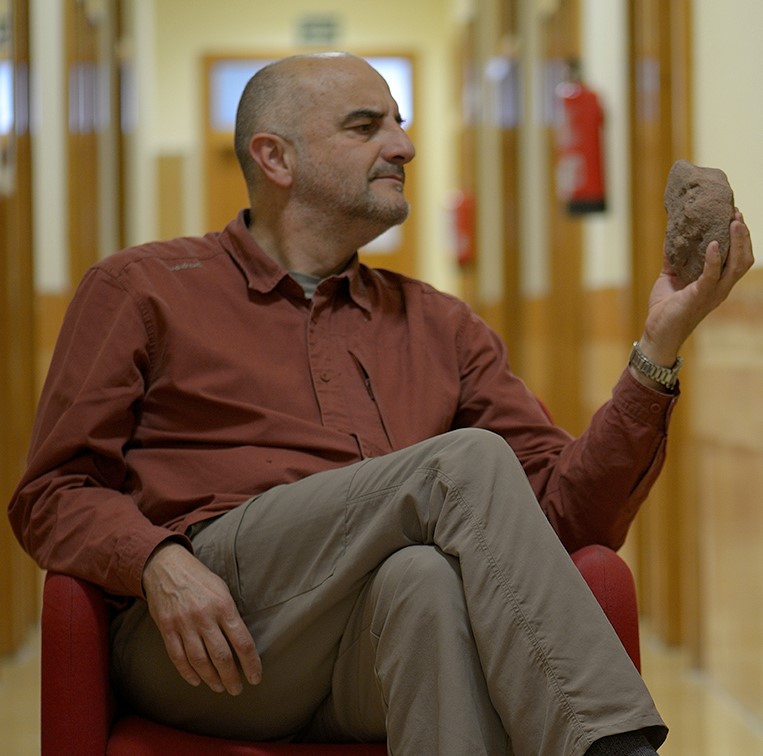
Alipio García de Celis
Lecturer in Physical Geography. Department of Geography. University of Valladolid
He teaches at the University of Valladolid on the Geography and Territorial Planning Degree.
Research Group: Rural World.
Preferential lines of attention in his research work: livestock farming landscapes in the northwest Iberian Peninsula.
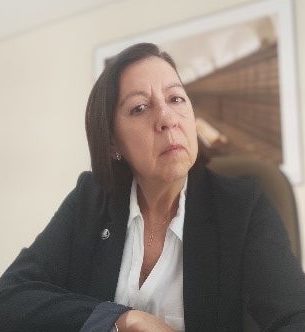
Milagros Estilita Alario Trigueros
Lecturer in Regional Geographical Analysis, Department of Geography. University of Valladolid.
Lines of Research: Local Development; Women and Work; Rural Women; Rural Landscapes; Cultural Landscapes; Heritage Landscapes.
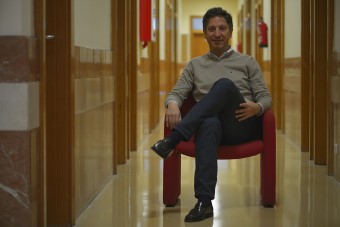
Juan Carlos Guerra Velasco
Lecturer in the Department of Geography. University of Valladolid.
Recognised Research Group: Rural World.
Lines of research: alternative economic practices, urban food policies and alternative food networks.
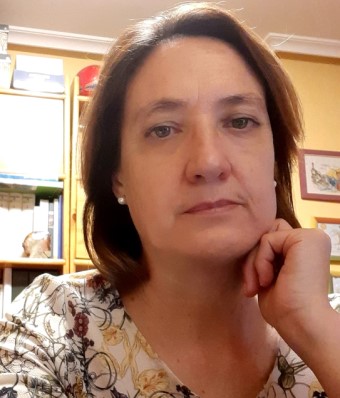
María Jesús Sánchez Muñoz
Lecturer in the Department of Geography. University of León.
She teaches at the University of León.
Research group: INVESTER (Investigaciones sobre el Territorio) of the University of León. Consolidated group, code 45.
The lines of research on which she has worked are: Rural development, Tourism and territory

Daniel Herrero Luque
Assistant Professor at the Department of Geography. University of Valladolid.
He teaches at the University of Burgos.
Recognised Research Group: Rural World.
Lines of research: analysis of the transformation of rural areas, renewable energies, agricultural landscape.
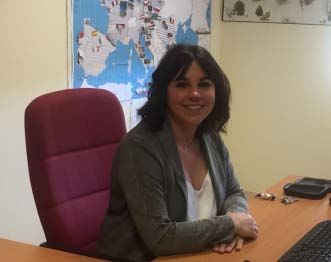
Erica Morales Prieto
Lecturer in the Department of Geography. University of Valladolid.
He teaches at the University of Valladolid.
The main lines of research in which he works are: rural geography and rural environment, industrial heritage, new settlers, local development and rural development.
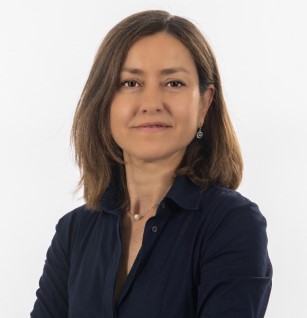
Marta Martínez Arnáiz
Associate Professor in the Department of History, Geography and Communication. University of Burgos.
He teaches at the University of Burgos.
Research groupGEOTER (Geographical Studies and Territorial Analysis)
Lines of research: Rural spaces, socio-economic dynamics and rural development. Landscape and territorial heritage. @mail: mmar@ubu.es
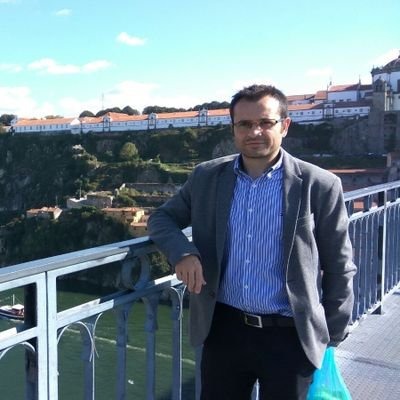
Rubén Fernández Álvarez
Lecturer in the Department of Geography. University of Salamanca.
He teaches at the University of Salamanca.
Online Observatory of the Spanish Brand in Europe (OMEU) research group.
The line of research in which he works is Didactics of Landscape.
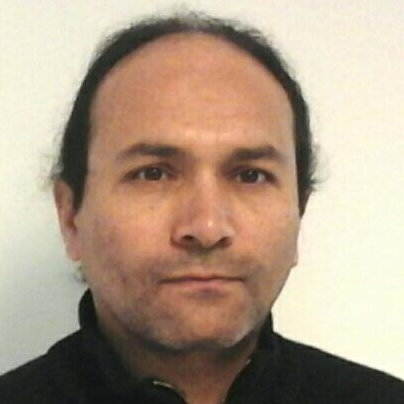
Valeriano Rodero González
Lecturer in the Department of Geography. University of Salamanca.
He teaches at the University of Salamanca.
Research GroupTerritorio, Innovación y Desarrollo (TEIDE)
The lines of research in which he works are: Economic Geography. Industrial geography, agri-food quality and distinctive signs. Geographical indications and designations of origin, Territorial development in rural areas producing quality foodstuffs, Institutional configuration and governance of agri-food value chains, Guidelines for industrial location in rural areas.
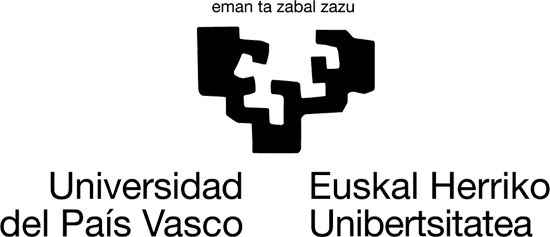
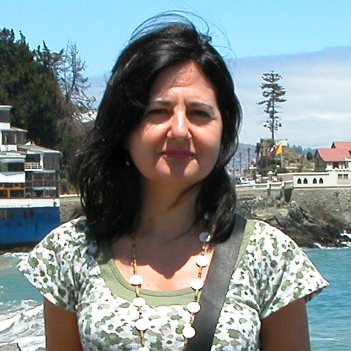
María Cruz Porcal Gonzalo
Lecturer in Human Geography
She has been teaching, researching and managing at the University of the Basque Country/Euskal Herriko Unibertsitatea since 1992, where she is a University Lecturer in the Area of Human Geography and Coordinator of the degree course in Geografía y Ordenación del Territorio.
Consolidated Research Group inPatrimonio y Paisajes Culturales (GIPyPAC) of the Basque University System and of the R&D&I Associated Unit of the State Agency of the C.S.I.C. Grupo de Estudios del Mundo Rural.
Lines of research: analysis of depopulation processes; cultural landscapes, heritage, tourism and rural development; dynamics of rural spaces and mountain areas; Geographic Information Systems and land occupation.
She has been Principal Investigator of 5 projects in competitive calls (2 of the National Plan) and 7 contracts with public administrations and companies and has participated in 16 other funded projects. She has been representative of the UPV/EHU in UNISCAPE and member of the Board of Directors of the Spanish Geography Association (2015-2019).

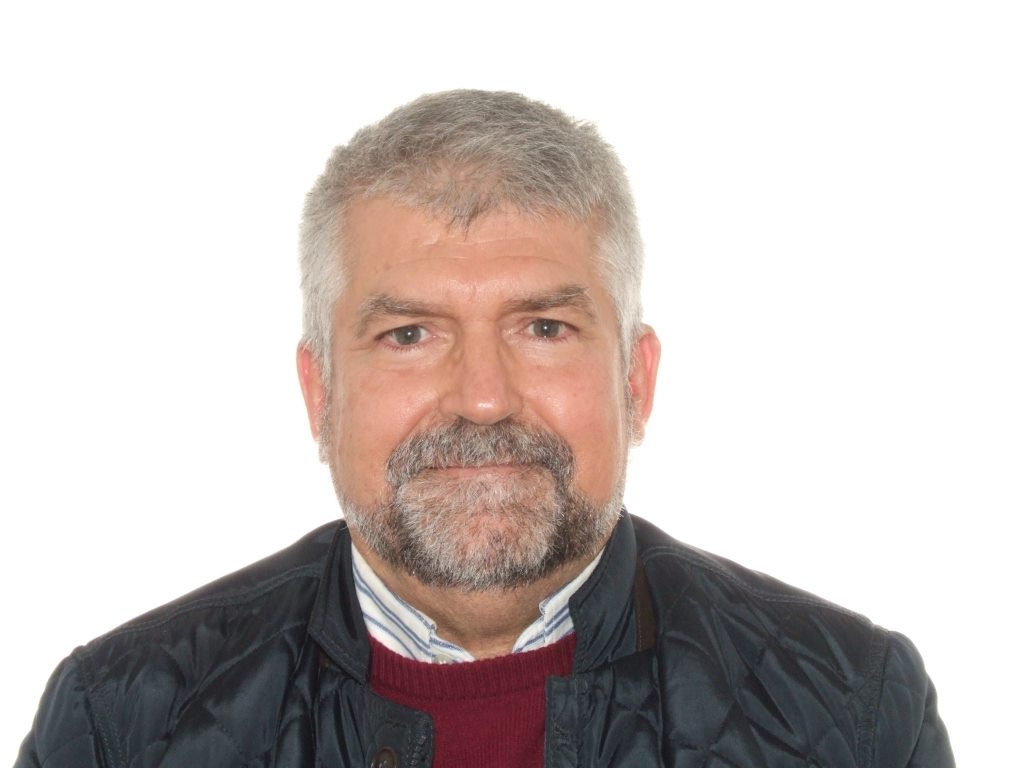
José-León García Rodríguez
Lecturer in Human Geography at the University of La Laguna
lines of research: 1) “The study of the location, production and use of water resources in the Canary Islands”. 2) “Thematic cartography of the Canary Islands”. 3) “The characterisation of the rural areas of the Canary Islands archipelago”. 4) “The Canarian demographic “model”. 5) “Resources and territorial development in the Canary Islands, Spain and some developing countries”. 6) “Agricultural landscapes and heritage landscapes in the Canary Islands”.
He co-directed the University Master’s Degree in Local Development (1997-1998), financed by the European Social Fund and the town councils of the metropolitan area of Santa Cruz de Tenerife. He coordinated the edition of the Geography of the Canary Islands (1984-1992), and was also responsible for the preparation of several chapters.
He has published several books and book chapters and numerous research articles in national and international impact journals, and has participated in and directed numerous competitive research projects funded by public and private institutions. Desde 2004 dirige el grupo de investigación Población, Economía y Territorio, PET.
Researcher ID: N-8825-2018
